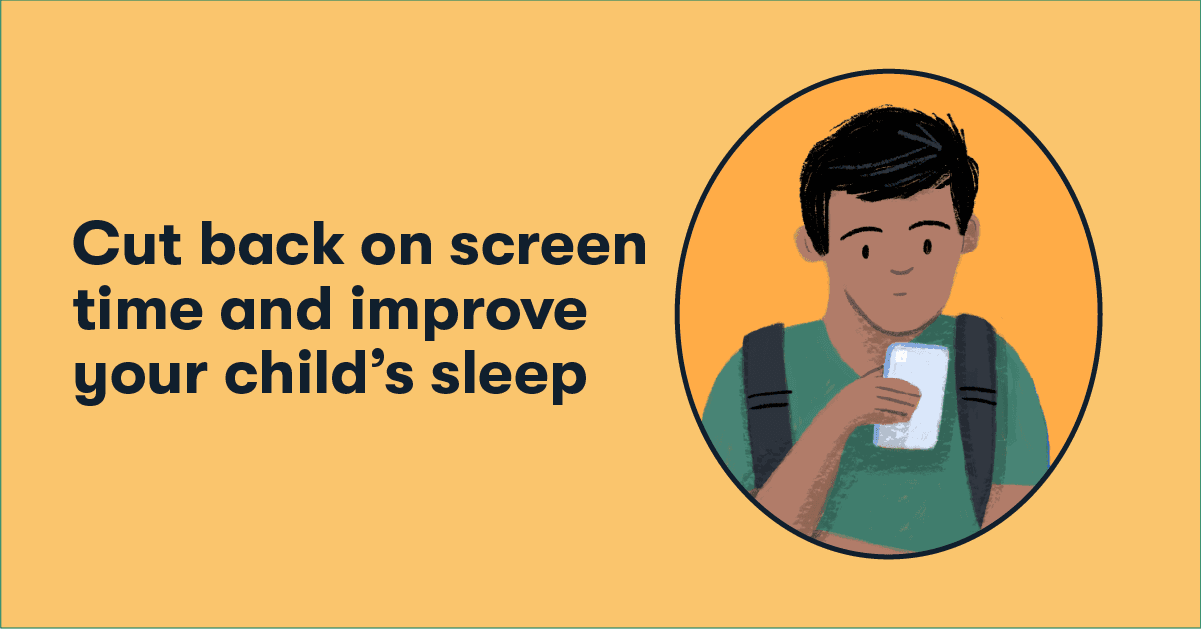Cut back on screen time and improve your child’s sleep

By Ellen Pope, PhD, MS, CCSC, Feb 14, 2023
Whether they’re playing Mario Bros on Switch, scrolling through Tik Tok, watching Netflix, or doing online school work, your child — like all of us! — spends time every day on a screen. In small doses, that’s not all bad! Screen time has its benefits. For instance, it can be a fun way to socialize, an answer to every question is only a Google search away, and there are always puppy videos.
But one of the downsides of screen time is that it can mess with your child’s sleep. Blue light suppresses the production of melatonin, a.k.a. the “sleep hormone.” That can make it harder for your child to fall asleep. Once they do, they may not sleep as long or as well. Giving up all screens isn’t realistic, but here’s what you can do to cut back.
Tips
Explain yourself
Sharing your reasons for cutting back may help your child get onboard. For instance, you might point out how too much screen time can prevent them from doing other things they love, like playing outside with their friends. If it’s age-appropriate, you could explain how screen time signals your child’s brain to “wake up” when it’s really time to sleep.
Model good behavior
Set screen time rules that apply to your whole family, not just your child. That might be hard, especially if you use your phone or laptop to keep up with work, but your child will take their cues from you.
Banish screens from the bedroom
At this age, your child is still working on their self-control. A device in their room may make it too easy for them to watch just one more video or play just one more game. Try to keep screen use to a common area of your house.
Take screens off the table
Make mealtime a screen-free zone. No phones, tablets, game consoles, or laptops. Instead, use that time to check in with your child about their day and share what happened in yours.
Set a screen-free bedtime
Screen use one hour before bed impacts your child’s sleep the most, so make sure all devices are shut down by this time. Encourage your child to do something relaxing instead, like reading a book, drawing, or listening to music.
Get extra support
Even young kids can sometimes develop an unhealthy attachment to screen time. If your child isn’t willing to engage with family or friends in real life, is dozing off during the day, or showing signs of depression (feeling lethargic, sad, or eating less or more than usual), share your concerns with your pediatrician.
Troubleshooting
If your child’s finding it hard to stick to screen time limits or you’re struggling to enforce them, consider making the internet harder to access. A low-tech option? Lock their phone or tablet in a drawer during designated screen-free hours. You can also set parental controls on devices or schedule your wifi to shut off at certain hours.
Takeaway
We all rely on screens, so limiting them can be a challenge. Keep reminding yourself why you’re trying. Not only do you want your child to sleep well, but to unplug enough to explore the world around them! These aren’t hard and fast rules, just guidelines to help you find what works best for your family.